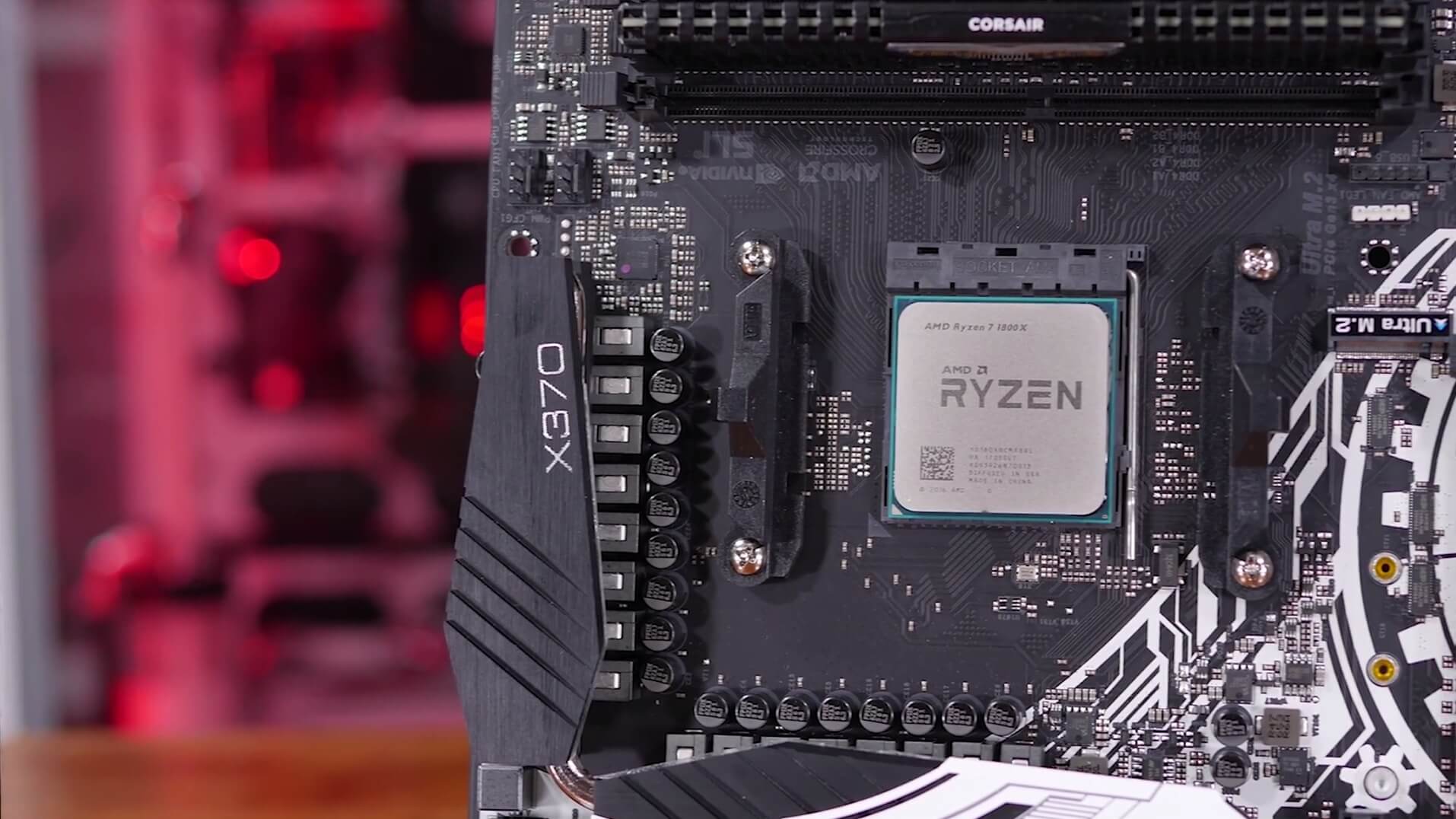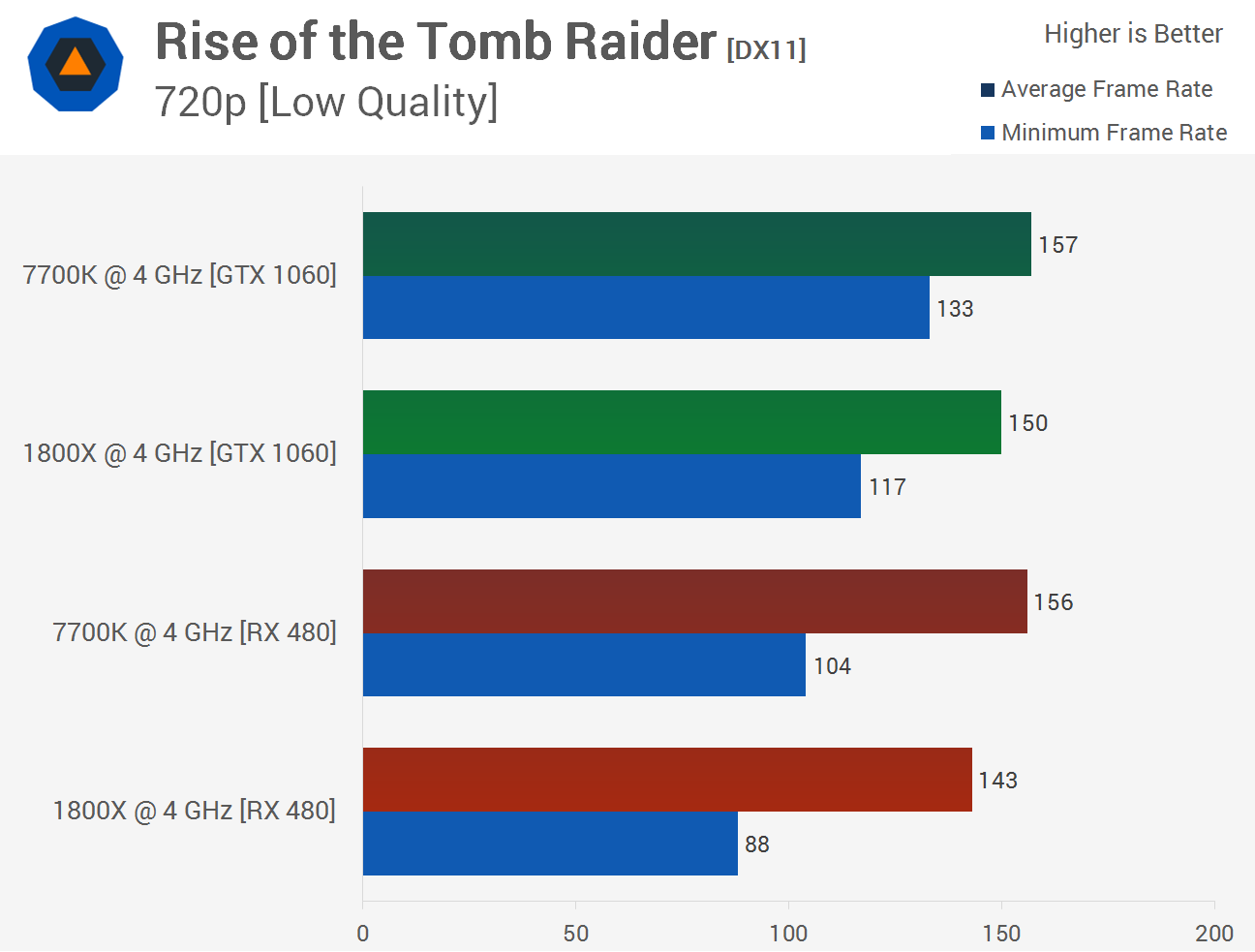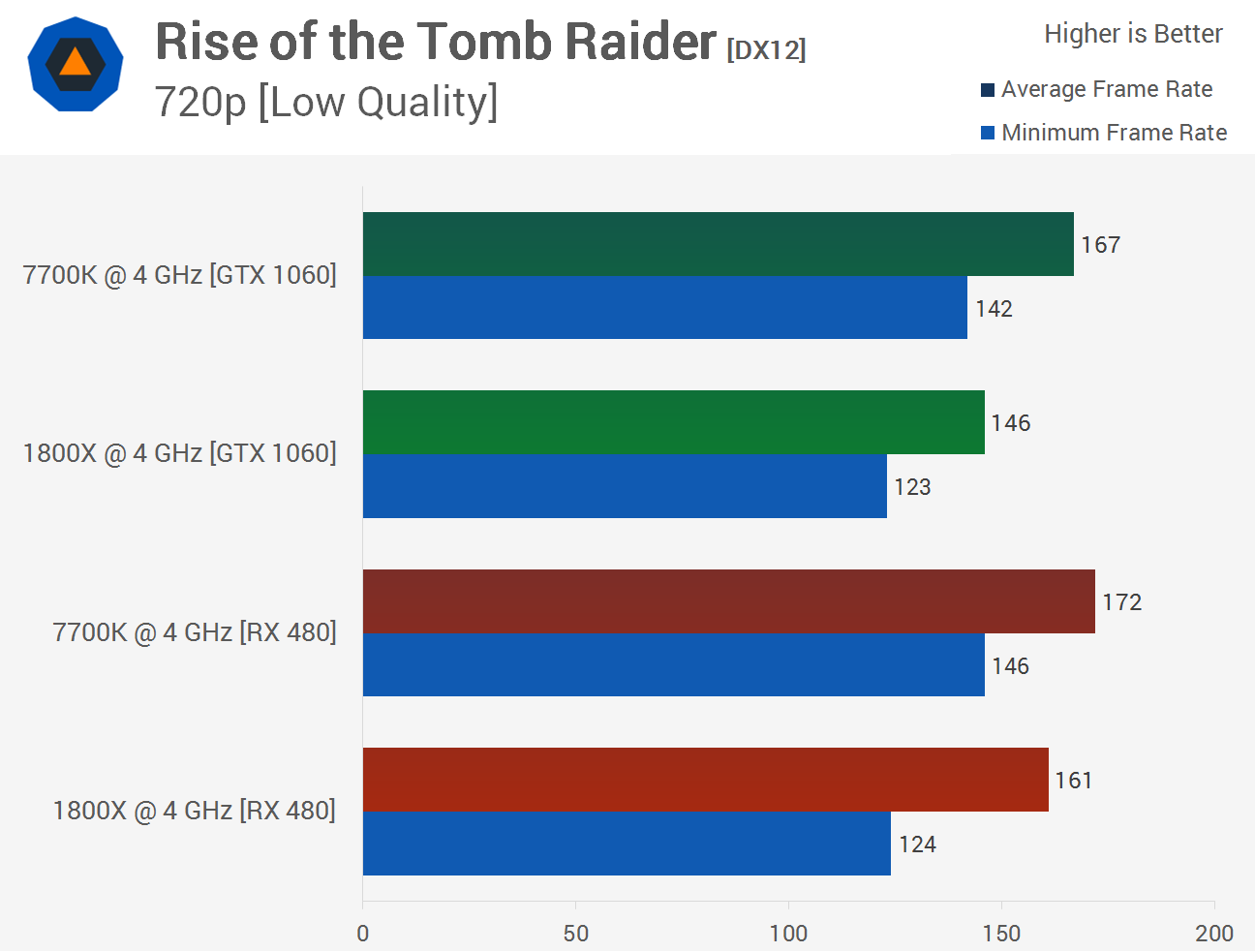Last month we tested the gaming performance of AMD's Ryzen 7 processors by pairing them with a Titan X Pascal and playing 16 new games at 1080p and 1440p. Those results were reasonable but not quite where you would expect them to be given the incredible productivity performance of AMD's latest architecture.
Since then we've been looking at Ryzen from a few different angles, exploring the impact of memory scaling, CCX performance as well as software/firmware updates. The biggest gains by far at this point have come from game developers.
Recently AMD spent a few weeks working with the teams at Stardock and Oxide Games to boost Ryzen's performance in Ashes of the Singularity and the resulting update offers up to 30% more performance for the Ryzen 7 1800X. We've also seen Dota 2's minimum frame rate boosted by roughly 15% for the 1800X and optimizations are coming to other games as well.

This is exciting stuff and while we can't wait to see more games to take full advantage of Ryzen, in the meantime we've decided to put a rumor to the test.
It was recently claimed that Ryzen's gaming performance is actually better than we think, but that it's limited by Nvidia's GeForce graphics cards. Armed with that allegation, fans of the red team ran amuck, quickly spreading what may very well be misinformation.
Curious to see if there is any truth to the story, we grabbed a test system and installed a GeForce GTX 1060 and Radeon RX 480. Both were equipped with the latest display drivers and were only put up against low quality settings at 720p to help eliminate GPU bottlenecks.
In total we benchmarked 13 games, five of which were tested using DirectX 11 and DirectX 12.

We configured both the 7700K and 1800X to run at 4.0GHz but you can ignore Kaby Lake's downclock because I'm not trying to show which processor is faster. Both chips have also been paired with DDR4-3200 memory (we now have some new CL14 stuff from G.Skill which works great with Ryzen).
That about sets the scene, so let's start with the titles that support both versions of DirectX and see whether Ryzen processors are better equipped with a graphics card from AMD or Nvidia.
Rise of the Tomb Raider [DX11 & DX12]

Looking at Rise of the Tomb Raider first, we see that the 7700K was just 5% faster than the 1800X when both are paired with the GTX 1060, though if we compare minimum frame rates the 7700K is 14% faster.
Swapping to the RX 480, the 7700K is now 9% faster than the 1800X on average while its lead in minimum frames is extended to 18%.
When testing Tomb Raider using DX11, Ryzen actually performs worse in relation to the 7700K with the RX 480.

Things look different when testing with DX12, however. Starting with the GTX 1060 results, we find that the 7700K is 14% faster when comparing the average frame rate, yet after swapping to the RX 480 the 7700K is just 7% faster.
You could argue we might be running into a GPU bottleneck with the 7700K here at 172fps. The fact that there is an 18% variation in minimum frame rate performance using the RX 480 and just 15% with the GTX 1060 certainly does suggest this.
For those wondering, these results are based on the canned benchmark, but the figures from the level Geothermal Valley line up with what I was seeing from the custom PresentMon pass. I can include those results later if necessary but I will probably wait for Vega before touching on this again.
